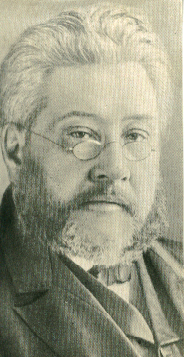 Praise is an important part of prayer.
Praise is an important part of prayer.
Praise Transforms . . .
- Defeat into triumph: Praise is mightier than armies (2 Chronicles 20:20-27).
- Insurmountable obstacles into rubble: Praise is stronger than walls (Joshua 6:1-21).
- Imprisonment and abuse into freedom and salvation (Acts 16:22-34)
- Sickness into health as it affirms the promise of covenant benefits (Psalm 103:1-3)
- Weakness into strength as we abide in complete dependence on Him (Psalm 84)
- Transforms mourning into joy (Isaiah 61:1-2)
The Sacrifice of Praise
God formed us to declare His praise (Isaiah 43:21). We are sealed in him to the praise of his glory (Ephesians 1:14). God is still looking for worshipers (John 4:24). Worship is the focus of the future (Revelation 7:9). It is the occupation of eternity. God needs nothing, but he commands praise!
Sacrifices from hearts not fully his are a stench to him (Psalm 50:8-14; 51:16-17; Isaiah 1:12-15), but the sacrifice of holy praise is a sweet aroma (Psalm 141:2; 2 Corinthians 2:14-16). When we praise, He sings over us (Zephaniah 3:17).
Praise does not depend on circumstances. In despair, trial, and grief of soul – praise that comes to God saying, “All I have to offer you is praise, and right now, I choose to praise You” (Psalm 88-89:1-4). Sylvia Gunter writes, “Workers who do not focus on Jesus as their Reason and Reward will soon become disgruntled ex-workers when they are not properly stroked or appreciated for their contribution. Worshiping hearts make sacrificing hands.”[1]
Praise does not depend on circumstances. In despair, trial, and grief of soul – praise that comes to God saying, “All I have to offer you is praise, and right now, I choose to praise You” (Psalm 88-89:1-4). Sylvia Gunter writes, “Workers who do not focus on Jesus as their Reason and Reward will soon become disgruntled ex-workers when they are not properly stroked or appreciated for their contribution. Worshiping hearts make sacrificing hands.”[1]
 |
| C. H. Spurgeon |
Charles Spurgeon wrote: “The Lord always deserves to be praised for what he is in himself, for his works of creation and providence, for his goodness towards his creatures, and especially for the act of Redemption and all the marvelous blessings flowing therefrom. Learn to practice the eternal hallelujah.”[2]
[1] Sylvia Gunter, Prayer Essentials for Living in His Presence (Birmingham, AL: Father’s Business, 2000), 1:36.
[2] Charles Haddon Spurgeon, Morning and Evening, July 31.

No comments:
Post a Comment